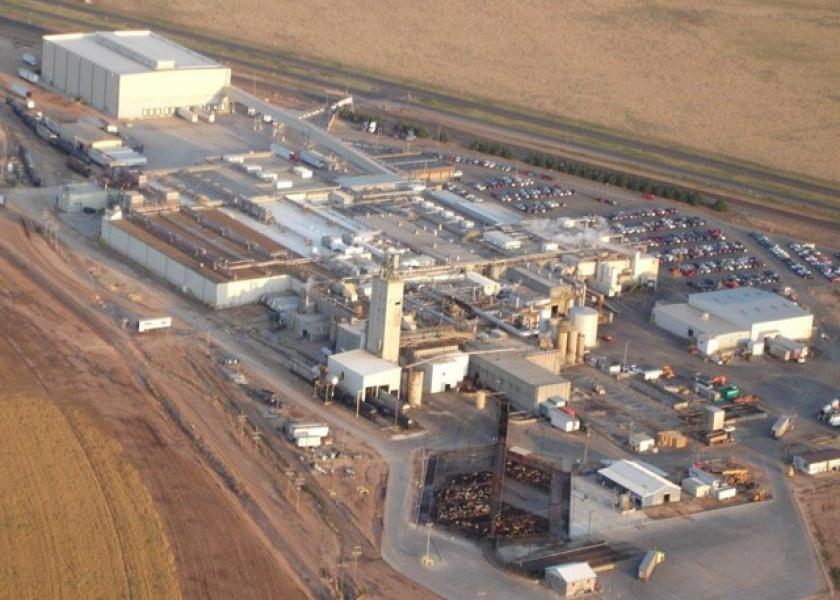Cargill Says More Work to Do as It Reviews Global Empire

Cargill Inc. is continuing to review its sprawling array of businesses as the largest closely held U.S. company tries to recover profitability lost amid a slump in agricultural prices and some commodity-trading missteps.
The 151-year-old company, whose global activities range from slaughtering cattle and trading energy to the production of de-icing salt, is in the midst of a corporate transformation. In the past year it has sold about $2.4 billion of assets including its U.S. pork business.
In looking at individual units, Minneapolis-based Cargill is considering not just profitability but scale, leadership in the relevant industry, and the cost savings that can be achieved with other parts of the company, Chief Financial Officer Marcel Smits said.
“We’ve raised the bar in terms of expectations that we have for the performance of our business,” he said in an interview Wednesday after Cargill reported fiscal fourth-quarter earnings.
The comments indicate the company may not be finished in jettisoning unwanted parts of an empire that spans 70 countries and employs 150,000 people. The past two years have been a bumpy ride. In Cargill’s fourth quarter last year it posted the first net loss in 14 years. On Wednesday it said net profit last quarter rebounded to just $15 million, with an adjusted operating loss of $19 million, a performance that Smits acknowledged was unsatisfactory.
Not Alone
Cargill isn’t alone in struggling to navigate current commodity-market conditions. Rivals Archer-Daniels-Midland Co. and Bunge Ltd. are also reviewing their businesses and have exited or plan to quit some operations. ADM will soon exit its global sugar-trading activities, a person familiar with the matter said last month.
There are limits to what Cargill will do. As a closely-held company -- controlled by its eponymous founding family -- it has “an obligation to be a diversified business for our shareholders” and it has “some room to allow for businesses that are a little more to the periphery,” said Smits, who joined in 2013 after working at Sara Lee Corp.
While it’s largely focused on products connected with agriculture, “that’s not the end of it,” he said. Cargill has a “very successful” salt and de-icing business with high returns that “we like a lot,” he said.
“We want to be in businesses where we can win,” Smits said.
Asset Sales
Recent asset sales offer clues to Cargill’s approach. The U.S. pork unit, sold to Brazil’s JBS SA for $1.45 billion last year, was offloaded because it wasn’t an industry leader in scale or earnings, Smits said. Cargill also sold a stake in a U.S. steel mill which, despite being profitable, offered no synergies with the rest of the company, he said.
Cargill has also been busy with managing costs and removing management layers to increase accountability and agility, the CFO added. He declined to comment on a report last week by the Wall Street Journal that Cargill is mulling the sale of its energy and metals units. The energy business posted a small loss in fourth quarter, the company said Wednesday.







